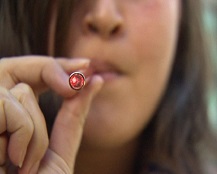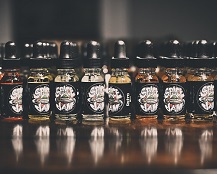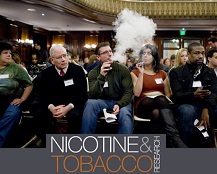A new study looking at the effect of e-cigarette vapor on human airway cells has found no sign of toxicity, with the vapor-exposed cells faring about as well as the air-exposed ones. The new finding adds further evidence that the risks associated with vaping are likely to be very small, and almost certainly much less than the risks of smoking.
New research from the University of East London has added further evidence that e-cigarettes are extremely effective for reducing cigarette use, with a total of 88 percent of the sample reporting at least a significant reduction in smoking.
A new study from Dr. Konstantinos Farsalinos looking at existing evidence on the metal emissions from e-cigarettes has determined that vapers don’t need to be concerned about metal exposure. Vapers’ exposure to chromium, cadmium, copper, nickel, lead and cadmium was found to be between 2.6 and 37.4 times lower than the maximum allowable levels in inhalable medicines.
A new study has offered further evidence of the harm reduction potential of e-cigarettes, finding that e-cig vapor is less toxic to lung cells than cigarette smoke, and that it also produces less oxidative stress.
Another study has called the addiction-based criticisms of vaping into question, suggesting that e-cigarettes are much less addictive than cigarettes and around as addictive as nicotine gum - which isn't particularly addictive at all.
A new study from Dr. Konstantinos Farslinos and colleagues has provided further confirmation that e-cigarettes are vastly safer than cigarettes, including naturally-extracted tobacco (NET) e-liquids that use flavor directly extracted from tobacco leaves. Among other findings, NET e-liquids were shown to have over 200 times less nitrosamines than cigarettes.
According to a new study, minors can “easily” buy e-cigarettes online – provided they’re happy to lie about their age and are in possession of a credit card – so the authors argue that adult vapers shouldn’t be able to receive deliveries. The authors found that 94 percent of purchase attempts made by minors, that weren't thwarted by apparent website errors rather than age verification issues, were successful.
A new study has investigated the flavoring chemicals in e-liquids, and has generated some concern in the media about their risks, with Time using the headline “E-cigarette flavors may be dangerous, study says.” But is this another example of overstating a minor risk for the purpose of spreading mistrust of e-cigs, or is there actually something to it?
A new study published in the International Journal of Environmental Research and Public Health has provided more evidence in support of something vapers have known for a long time: that the variety of flavors available is integral to quitting smoking using electronic cigarettes.
A recent study from Dr. Konstantinos Farsalinos and colleagues suggests that unlike cigarette smoking, vaping doesn’t have any adverse effects on acute heart function.
The authors of a new paper into the carbonyl output of e-cigarettes (things like formaldehyde and acetaldehyde) and how the PG/VG ratio and voltage used influence it decided that the best way to disseminate their findings was through the New York Times.
A new piece of research published in the American Journal of Preventative Medicine has offered evidence destined to be used as a justification for spreading fear about the assumed risks of e-cigarettes.
In a new study, the profound level of public misunderstanding about tobacco harm reduction products like chewing tobacco, snus and e-cigarettes has been revealed. Among other findings, the study suggests that around half of those who’ve heard about e-cigarettes believe them to be either as harmful as smoking or even more so.
A new piece of research has investigated the concentrations of nicotine, carbon monoxide and various volatile organic compounds after e-cigarette use, and compared them to those from a traditional cigarette.
A new study claims to have found carbon monoxide in e-cigarette vapor, and the news media is sounding the alarm: but is it a genuine concern? With echoes of the formaldehyde story from years ago, the answer is a resounding "no."
A new study has revealed that perceptions of the risks of vaping vs. those of smoking influence the chance of successfully switching. Dual users who thought vaping was dangerous were less likely to quit.
A new piece of research from Dr. Konstantinos Farsalinos and his colleagues has investigated the potential cytotoxicity of e-cigarette vapor, and found that (shockingly enough) the vast majority of vaporized liquids are much safer than the smoke from traditional cigarettes.
Vaping is over 95% safer than smoking, but most people don't know it. If we give smokers accurate information, they're more likely to choose harm reduction. So why aren't more people telling the truth about vaping?
A new study from Professor Riccardo Polosa has found that second-generation e-cigarettes are effective for helping smokers quit. Two-thirds of the smokers studied, who had no intention of quitting, either stopped smoking entirely or reduced their daily smoking by at least half after starting vaping.
A new study looking at the factors associated with switching from cigalike e-cigarettes to advanced devices has provided more evidence that newer-generation devices are more effective when it comes to quitting smoking, and confirms what most vapers know: advanced devices are just better all round.




















